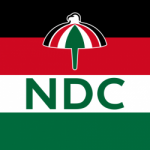The Bank of Ghana (BoG) has confirmed that the government’s Gold for Oil policy is progressing as planned.

The policy was introduced to address the rapid depletion of Ghana’s foreign currency reserves and the high demand for dollars by oil importers, which has been weakening the Cedi and driving up living costs.
The initiative aims to stabilize the currency and control inflation.
During a session with the Public Accounts Committee of Parliament on Monday, August 12, Dr. Maxwell Opoku-Afari, the First Deputy Governor of the Bank of Ghana, provided a comprehensive update on the policy’s implementation.
“The gold for oil programme is on track and the reason why the risk for the separate account is mitigated somehow is that the central bank’s participation in terms of financial contribution to the gold for oil is capped and nothing more is being added to that.
“So it is the receivables that are coming from within that cap amount that has been used to continue to finance the gold for oil programme,” he stated.
The Gold for Oil policy, as outlined by the government, allows for the payment of imported oil products with gold, using a direct barter system involving gold purchased by the central bank.
According to the government’s G40 Programme Framework, dated February 3, 2023, there are two payment methods for the oil supply: barter trade or forex obtained by selling gold to a broker.
In the barter channel, suppliers who accept gold in exchange for petroleum products will receive the equivalent amount of gold from the Bank of Ghana (BoG).
In the Broker Channel, the BoG sells gold to a broker under a gold supply agreement, with the broker providing the necessary foreign exchange to pay for the oil products.
























































![[FREE FREE MONEY] Predict and Win a Guaranteed GH¢200 From Us EVERY WEEK](https://wordpress.ghanatalksradio.com/wp-content/uploads/2022/02/Predict-and-Win-Final-09-03-2021-218x150.jpg)
![[Predict & Win – 8th/Oct.] WIN A Guaranteed ¢200 From Us This Week](https://wordpress.ghanatalksradio.com/wp-content/uploads/2021/10/maxresdefault-16-218x150.jpg)
![[Predict & Win – 2nd] WIN A Guaranteed ¢200 From Us This Week](https://wordpress.ghanatalksradio.com/wp-content/uploads/2021/09/maxresdefault-50-218x150.jpg)
![[Predict & Win – 25th] WIN A Guaranteed ¢200 From Us This Week](https://wordpress.ghanatalksradio.com/wp-content/uploads/2021/09/maxresdefault-36-218x150.jpg)
![[Predict & Win – 18th] WIN A Guaranteed ¢200 From Us This Week](https://wordpress.ghanatalksradio.com/wp-content/uploads/2021/09/maxresdefault-23-218x150.jpg)









![[National cathedral] See full list of churches that have contributed since 2018](https://wordpress.ghanatalksradio.com/wp-content/uploads/2020/09/Ghana-National-Cathedral-GhanaTalksRadio-100x70.jpg)



